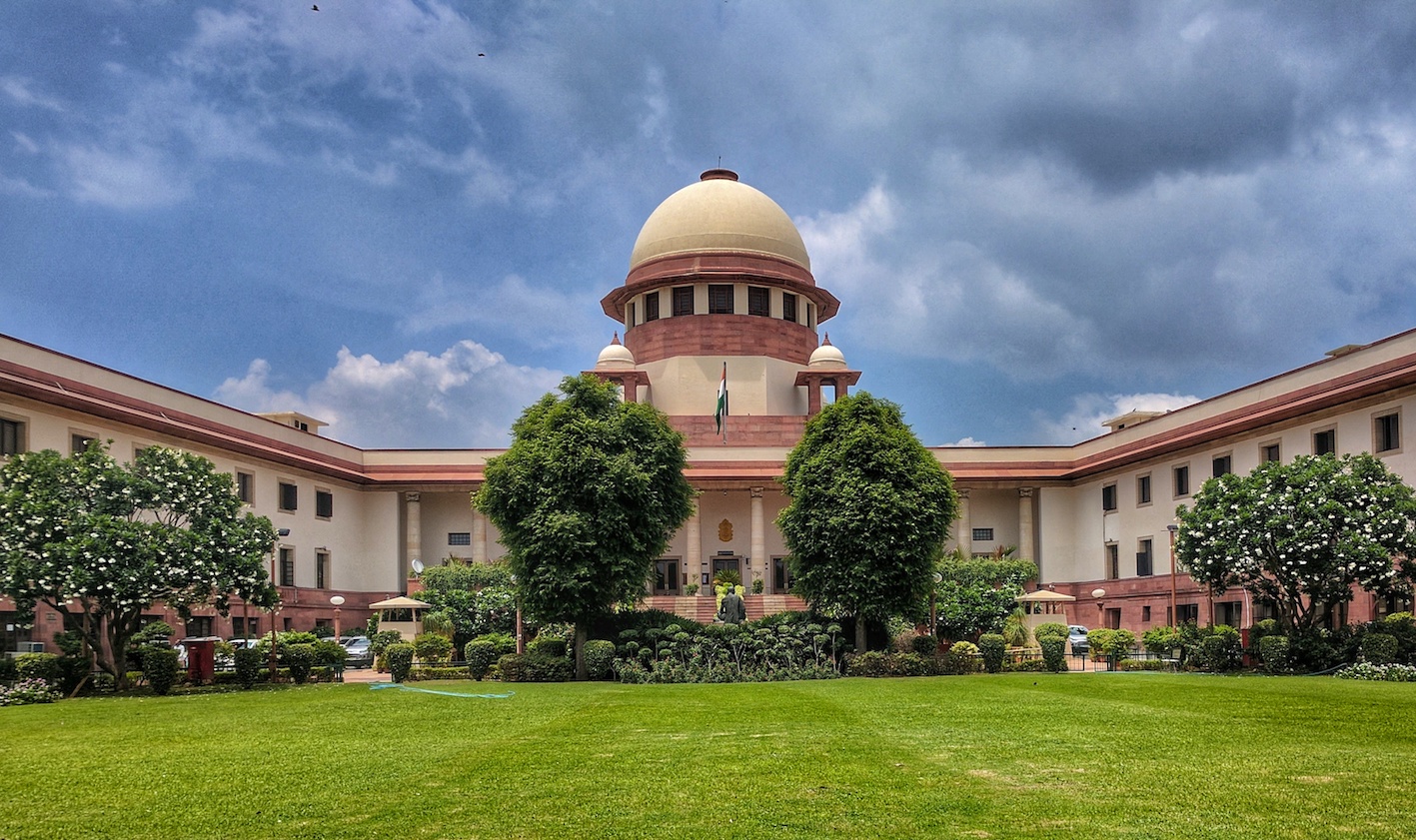The disqualification under Section 8(3) of the Representation of the People Act, 1951 will continue so long as there is no stay of conviction: Supreme Court
The bench in the present case consisting of Hon’ble Chief Justice Mr. S.A. Bobde, Hon’ble Justice Mr. A.S. Bopanna and Hon’ble Mr. Justice V. Ramasubramanian, upheld the decision of the Honorable HC of Kerala, thereby dismissing the SLP along with no further order as to cost, this remarkable stand was forwarded by the Honorable SC in the SLP case of Saritha S. Nair V. Hibi Eden, [SLP (Civil) No.10678 OF 2020].
In the Lok Sabha elections of 2019, the petitioner filed her nomination on 04.04.2019 in the Ernakulam Constituency. The petitioner was to contest as an independent candidate. On 06.04.2019 the nomination of the petitioner was rejected on the ground that she was convicted in 2 criminal cases. In the first case the petitioner was imposed with a punishment of imprisonment for 3 years, with a fine of Rs.45 lakhs, by a judgment dated 08.06.2015. In the second case she was imposed with a punishment of imprisonment for 3 years, with a fine of Rs.10 lakhs, by a judgment dated 16.02.2016.
The Returning Officer, noted in his order dated 06.04.2019 that the petitioner stood disqualified in terms of Section 8(3) of the Representation of the People Act, 1951, as the period of disqualification had not lapsed.
Aggrieved by the order of rejection of the nomination, the petitioner filed an appeal to the Chief Electoral Officer. Thereafter, the petitioner moved a writ petition in W.P.(C)No.11282 of 2019. But the Writ Petition was dismissed on 09.04.2019. The petitioner filed a writ appeal but the same was also dismissed on 12.04.2019.
Therefore, after the elections were over, the petitioner filed an election petition in Election Petition No.4 of 2019, primarily contending that the rejection of her nomination was illegal and unjustified and that such rejection materially altered the outcome of the election in which the Respondent herein was declared elected. The main contention of the petitioner in her election petition was that she had simultaneously filed a nomination in the Amethi Constituency of Uttar Pradesh and that despite disclosure of the very same information about her conviction and pendency of appeals, her nomination was accepted there. Therefore, she contended that 2 different yardsticks cannot be applied and that in any case, so long as the sentence of imprisonment remained suspended, the disqualification under Section 8(3) of the Representation of the People Act, 1951, may not be attracted.
It appears that lot of defects was noticed by the Registry of the High Court in both the election petitions. The defects noticed in both the election petitions were more or less the same. But in so far as Election Petition No.4 of 2019 is concerned, out of which the present SLP arises, the Registry noted one additional defect namely that the prayer of the petitioner was incomplete.
As against a common order passed by the High Court of Kerala throwing out 2 election petitions filed by the petitioner herein, on the ground of incurable defects, the election petitioner has come up with the above Special Lseave Petition.
After examining all the submissions, arguments and evidences forwarded by the councils, the Hon’ble SC observed that, “In the case on hand, the petitioner could not obtain a stay of conviction but obtained only a stay of execution of the sentence. Hence her nominations were validly rejected by the Returning Officer. Merely because the Returning Officer in Amethi Constituency committed an error in overlooking this fact, the petitioner cannot plead estoppel against statutory prescription”
In lieu of the above made considerations and observations, the bench in this present case upheld the decision of the HC stating that, “We hold that the petitioner was disqualified from contesting the elections in terms of Section 8(3) of the Act. In such circumstances, she could not have maintained an election petition as a candidate at such election in terms of Section 81(1). Therefore, the High Court was right in not venturing into an exercise in futility, by taking up the election petition for trial, though the High Court was wrong in rejecting the election petition on the ground of existence of incurable of defects.”

